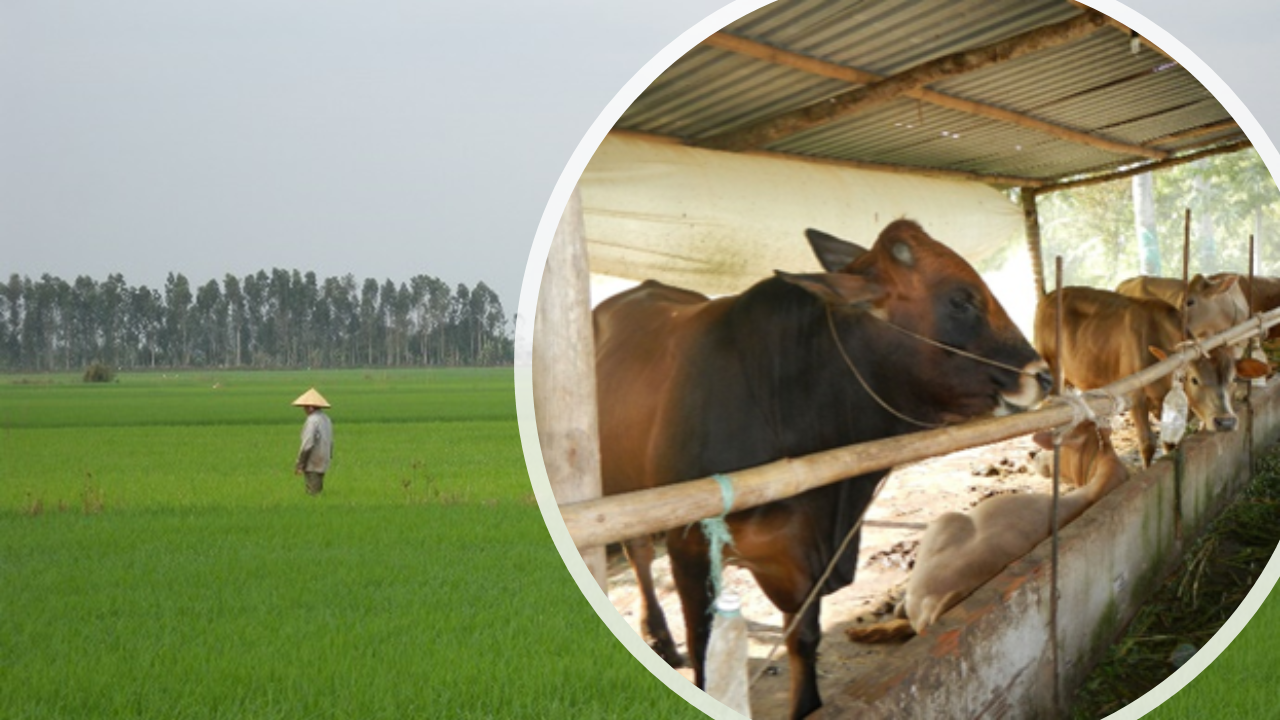Pick Up
365. Integrated rice and beef production systems are effective in reducing greenhouse gas emissions - Assessing the environmental impact in the Mekong Delta, Vietnam -

JIRCAS, in collaboration with the National Agriculture and Food Research Organization (NARO), the University of Miyazaki, and Can Tho University in Vietnam, conducted a life cycle assessment (LCA) to evaluate the environmental impact of separated rice and beef production systems and an integrated system in the Mekong Delta. It was found that the rice-beef-biogas integrated system can reduce greenhouse gas (GHG) emissions and energy consumption, and also reduce the potential for eutrophication.
Located in southern Vietnam, the Mekong Delta, produces about half of the country's total rice production due to its favorable topography and climatic conditions. In addition, demand for livestock products is growing rapidly in Vietnam, and beef cattle production is expected to expand in the future in this region, which is rich in by-products such as rice bran. On the other hand, paddy fields and ruminants such as cattle are major sources of GHG emissions in the agricultural sector, and rice straw, a by-product, is plowed into paddy fields or incinerated and is not effectively used as a feed resource.
In the integrated system, rice straw which is plowed into the paddy fields in the specialized system, and beef cattle manure which is discharged into the grassland, are regarded as resources, and rice straw is used as feed for beef cattle and manure as a raw material for biogas. The digested liquid generated from the biogas production is also used as liquid fertilizer for the paddy fields. In this way, GHG emissions can be reduced by 22% compared to the life cycle, due to such effects as the reduction of methane emissions from the paddy fields. In addition, energy consumption can be reduced by 22% through the use of biogas, and the eutrophication potential derived from livestock manure can be reduced by 14%.
The results of this research have verified that the integrated rice and beef production system is a superior system that has less impact on the global and local environment than the specialized rice and beef production system. In many countries in the Asian monsoon region, including Vietnam, methane emissions from rice paddies account for a major portion of domestic GHG emissions, and beef consumption is also increasing with economic development. Under the Paris Agreement on climate change, each country is required to submit a plan for climate action known as nationally determined contributions (NDCs). It is hoped that the rice-beef-biogas integrated system presented here will contribute to the countries of the Asian monsoon region in achieving their reduction targets.
Reference
Ogino et al. (2021) https://doi.org/10.1016/j.jenvman.2021.112900
Contributor: IZUMI Taro (Rural Development Division)
